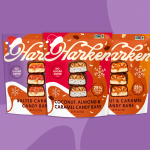Three Twins Founder on Closing: ‘We Made the Wrong Bet’
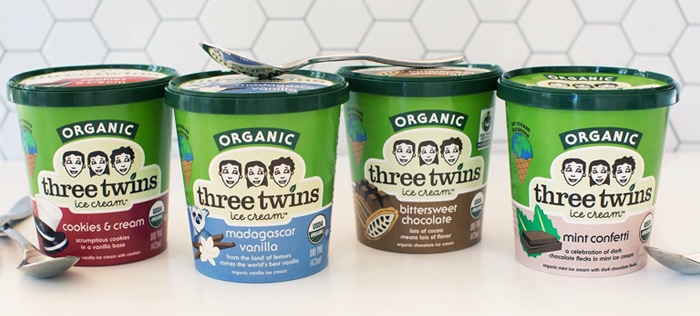
Over a decade after it opened, the founder of organic ice cream company Three Twins announced last week that it was closing. Neal Gottlieb attributed the difficult decision to financial hardships resulting from a lack of growth and poor product choices.
Founded in 2005 as a single scoop shop in Northern California, Gottlieb — well known in natural products circles for his ice cream-themed clothes and participation on the show “Survivor” — began selling hand packed pints of ice cream into regional grocery stores the following year. In 2010 the company opened a factory in Petaluma and expanded distribution up and down the West Coast. A second factory in Wisconsin followed and the company grew into national distribution.
At its peak, Gottlieb said, the company sold its products in roughly 5,000 stores, had over 40 employees and was doing just north of $13 million in net sales. But costs and scale remained problems.
“Our margins were not high enough overall,” Gottlieb said. “Early on we grew very rapidly and the hope was that we would continue to grow to the point where those margins would make sense, cover overhead and make a fair amount of profit. But then we stopped growing and had increased margin pressures.”
The price of Three Twins’ flagship line was an issue from the start, he said. Originally, the company’s pints were priced at $5, an unsustainable figure without sufficient efficiencies of scale — which never came. However, Gottlieb noted, if moved any higher than that, the product would not have grown to the point it did.
“It was a Catch-22,” he said.
Gottlieb actually drove to this year’s Natural Products Expo West hoping for “a last minute save” via an investor meeting, but by the time he finished dropping off his booth and checking into his hotel, the convention had been cancelled. With investors feeling conservative due to the Covid-19 pandemic, it became clear that closing was the only path forward, Gottlieb said.
In addition to margin issues, Gottlieb also said the company made a series of poor product decisions.
In 2017, chasing the success of low-calorie frozen dessert Halo Top, the company launched Slim Twin, an organic ice cream alternative with 24 grams of protein and 240-320 calories per pint, depending on the SKU. While Gottlieb hoped the new line, which was priced similarly to its core products, would bring higher turns, the result was just the opposite. Retailers not only took existing Three Twins shelf space away for Slim Twin, but the line actually saw slower turns than the company’s core offerings.
Although the company tried subsequently reformulating the line, customers never fully came on board.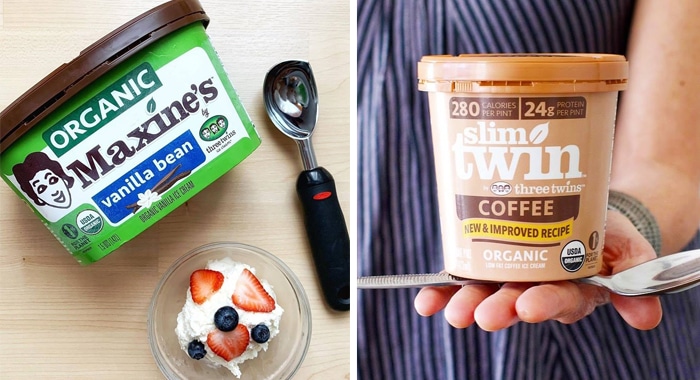
“We ran into trouble with that because we thought it would be incremental volume, but it wound up being a lot of cannibalization,” Gottlieb said. “If we had known what the volume was going to be at, we would have launched it at a higher price point, but we made the wrong bet.”
Although the ice cream category has a lot of brands fighting for limited shelf space, the subset of organic ice cream has struggled, Gottlieb said, and never seen the same broad adoption as organic fluid dairy. Although there are regional brands, there has been a lack of national players that have seen traction in both natural and conventional stores. For example, he said, both Ben & Jerry’s and Stonyfield discontinued their organic ice cream offerings, while Julie’s has subsequently merged with Alden’s (which recently rebranded to better appeal to consumers).
On top of this, Gottlieb also said the category has lost share to plant-based offerings.
“A lot of retailers are devoting a disproportionate amount of their shelf space to plant-based. If you look at the sales per shelf or sales per door, they are usually quite a bit lower in plant-based frozen desserts then they are in ice cream,” Gottlieb said. “But there’s still this belief that that’s what consumers want and that’s the direction the market is moving, which I’m not entirely convinced on.”
While expansion provided the company with necessary growth, moves into retailers also resulted in mounting costs around slotting fees, free-fills, and promotional programs — all of which reduced margins even further, Gottlieb said.
For emerging entrepreneurs, he has two pieces of advice.
“Make sure each individual retailer makes sense because you can think you can grow your way into profitability and that’s not always the case,” Gottlieb said. “Protect your margins. Make sure you have a high enough margin that you can ultimately build a financially sustainable company.”














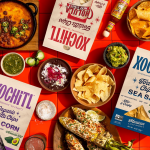
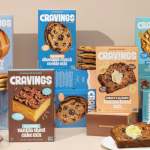
![[Exclusive] Sweet Loren’s Extends With Protein-Focused Offerings](https://d2azl42aua8mom.cloudfront.net/wp-content/uploads/2026/03/02165734/2026-03-02-sweet-loren-s-extends-with-protein-focused-offerin-square-150x150.png)
